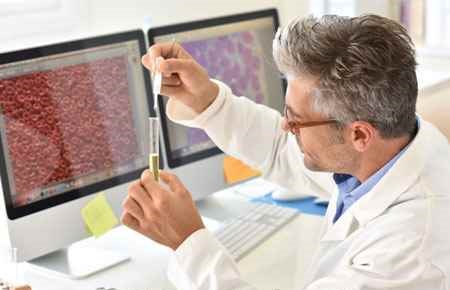
Cytogenetics/Genetics/Clinical Genetics Technology/Technologist Major
This major is a program that prepares individuals to perform analyses of the human genome and chromosomes for the research and diagnosis of genetic diseases and defects, in preparation for organ transplants, and in support of treatments for cancers and leukemias.
Includes instruction in chromosome analysis, fluorescent in situ hybridization (FISH), molecular genetic techniques, cytotechnology, and photomicrography.
What can you do with a major/degree in Cytogenetics/Genetics/Clinical Genetics Technology/Technologist Major?
As a Cytogenetic Technologist, it is your job to analyze chromosomes or chromosome segments found in biological specimens, such as amniotic fluids, bone marrow, solid tumors, and blood to aid in the study, diagnosis, classification, or treatment of inherited or acquired genetic diseases. Conduct analyses through classical cytogenetic, fluorescent in situ hybridization (FISH) or array comparative genome hybridization (aCGH) techniques.
Job opportunities for cytogenetic technologists are very strong in the future as this career subsector is expected to see a five-seven percent (5-7%) growth 2019-2029.
Seventy-three percent (73%) of individuals working as a cytogenetic technologist have an earned bachelor’s degree. Some states require certification.
Trade Associations and Professional Organizations in Cytogenetics/Genetics/Clinical Genetics Technology/Technologist Major
Professional associations are groups of professionals dedicated to topics in specific fields. Professional associations provide a wealth of online resources, some of which are geared specifically towards students. These organizations typically also host conferences and events, providing great opportunities for learning and networking across your field of interest.
- Association of Genetic Technologists
- Coordinating Council on the Clinical Laboratory Workforce
- The American Society of Human Genetics
- The American Society for Clinical Laboratory Science
- American Society of Cytopathology
Publications/Magazines in Cytogenetics/Genetics/Clinical Genetics Technology/Technologist Major
